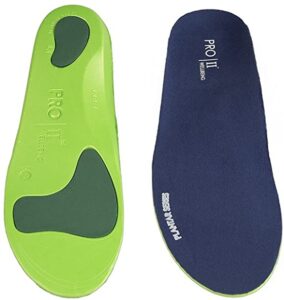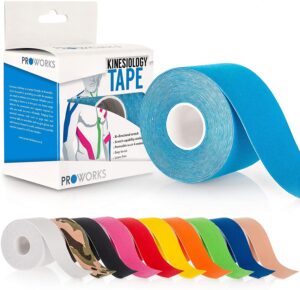Shin pains, shin splints (or medial tibial stress syndrome) are common in pregnancy. The pain is often on the inside of the shin and worse with activity.
Symptoms:
-
Pain / tenderness along the inner side of your lower leg.
-
The pain may be sharp, dull or throbbing.
-
The pain usually gets worse with exercise but may ease the more you do.
-
The pain usually goes away quickly when you rest.
Causes:
-
Change in your exercise habits (maybe increased walking after becoming pregnant).
-
Increased weight due to growing baby (or holding baby a lot after birth).
-
Running, jumping or working on hard surfaces.
-
Incorrect footwear for work / exercise.
Here is what the evidence says about the treatment options:
Insoles – There is a lot of evidence in favour of insoles or a change in footwear. HERE is another study in support of the use of insoles for shin splints.
The insoles that we would recommend based on our professional opinion and reviews are THESE:
Kinesio-Tape – THIS study found that taping using kinesio-tape for shin-splints helped to reduce the stress on the affected area.
The tape that we recommend based on our own usage and reviews is THIS one by Proworks.
HERE is a great video which shows how to apply the tape for shin splints.
Acupuncture – This study is very much in favour of acupuncture for shin-splints, they had very good resultsfrom needling a specific area. Contact your local Acupuncture registered (AACP), Physiotherapy clinic if you would like to try this type of treatment.

Exercise – THIS study found that there was little benefit associated with stretching and strengthening exercises when treating shin-splints. They reported that activity modification and rest plus the use of insoles were far more beneficial.

Compression stockings / running socks – THIS study found that there was little benefit associated with lower leg braces and compression stockings when treating shin-splints. They reported that the use of insoles and rest were more beneficial.
What symptoms to watch for:
If your pain is very bad or getting worse, you should speak to your physiotherapist or GP. They can then check you for other things that might be causing your shin pain.


